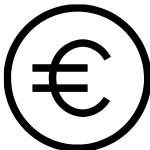Writing




Tuition

Duration

Admissions Deadline

Location
Profile
The MA in Writing is a one-year, full-time course. It covers a range of genres and forms, and it interacts with our other postgraduate offerings in Literature and Publishing, Drama and Theatre, and Film. The course thus builds on our strengths in the teaching of writing for page and stage, screen, journalism and other media. The course is open to applicants from any disciplinary background (within and beyond Arts) and welcomes all types of writing interests. A ‘Qualifier’ option is available for potential applicants who do not have a university degree but have a suitable publications record or sufficient experience in a related creative field.A weekly ‘Writers Seminar’ features writers, publishers, agents and other visitors from the writing professions. Galway’s Cúirt literary festival is the focus in April. Students attend events and complete a related assessment.
Map
Sorry, no records were found. Please adjust your search criteria and try again.
Sorry, unable to load the Maps API.
Related Programs
Program Information
Galway
Ireland
H91 E2A2
Ireland
- 1 year
- Full Time
- On Campus Learning
Additional Information
Considerations
